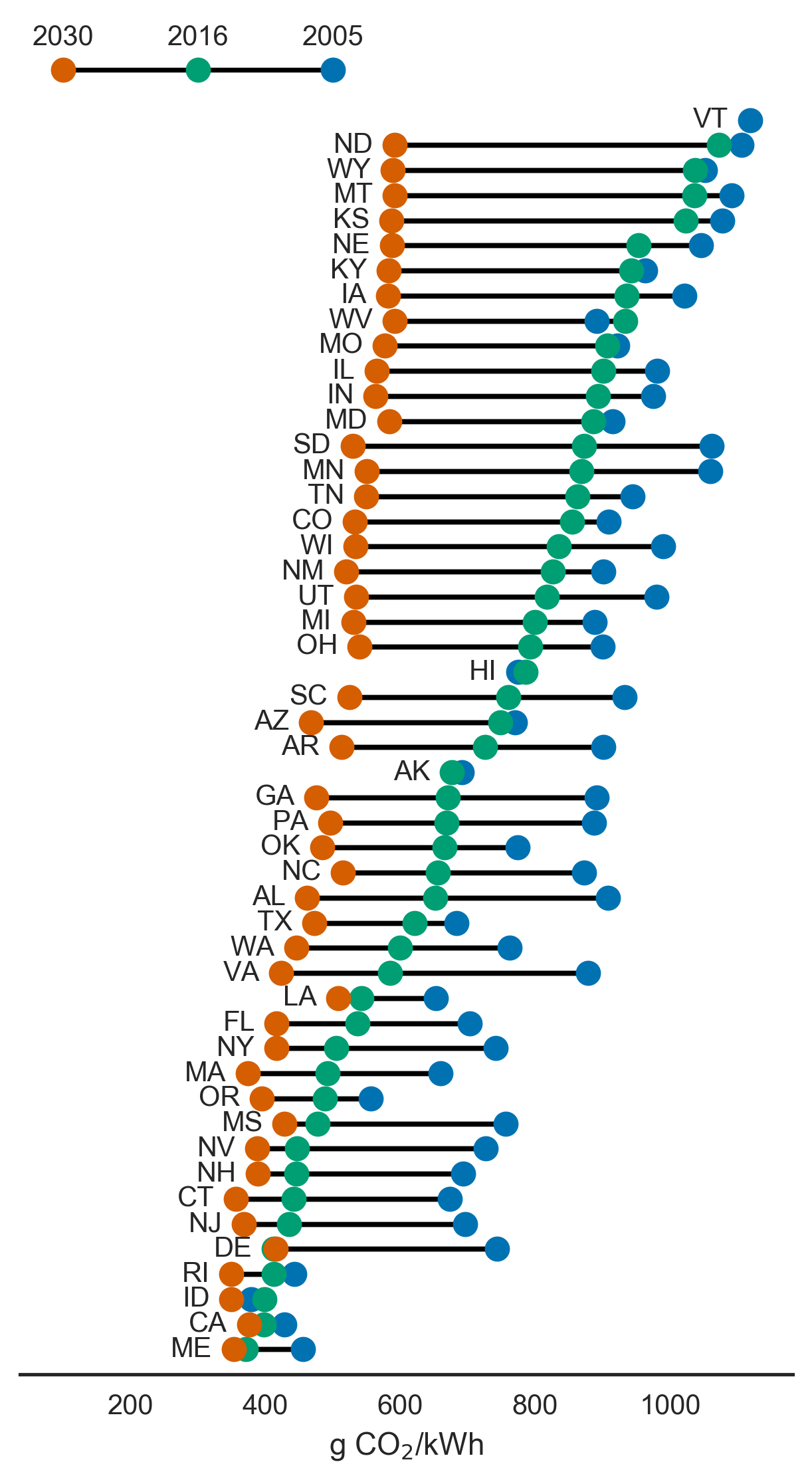Research
Modern energy and transportation technologies enable high standards of living across large parts of the globe. The fossil fuels these technologies have historically relied upon are major sources of greenhouse gases and criteria air pollutants. These criteria pollutants are responsible for millions of deaths globally. And despite substantial declines in the cost of renewable electricity generation, "there is no country with policies remotely consistent with the requirements to keep 'well below 2°C'.”.
I try to answer policy-relevent questions about changes in energy and transportation systems using the tools of data science — statistics, data processing, machine learning, and visualization. Recent and upcoming work includes:
- I developed an open-source climate model to quickly calculate radiative forcing and temperature change from greenhouse gas emissions. Using this model to examine deployment scenarios of carbon capture and storage (CCS) and methane emissions from the natural gas lifecycle, we determained that CCS must be deployed immediately on coal power plants for them to have any climate benefit over natural gas. This paper is back from review and undergoing revisions.
- High-quality information on the CO2 intensity of electricity generation has historically been difficult to access. Recent estimates are available from EIA, but the highest-quality source — EPA's eGRID — is always several years out of date. I helped build EmissionsIndex.org, which provides CO2 intensity data by month, quarter, or year. Updates with the newest data are released every quarter.
- The figure to the right shows the progress that states ahve made towards their clean power plan (CPP) 2030 goals. Values for 2005 and 2016 only include fossil generation.
- U.S. electricity CO2 intensity has dropped nationally, across all NERC regions, and across almost all states since 2001. State-level renewable energy policies helped reduce emissions in some cases, but low natural gas prices and rapidly dropping costs of wind generation have had nearly as strong of an impact in states without renewable portfolio standards.
- I'm currently investigating the accuracy of emissions estimates from marginal electricity production in future years using machine learning models. Look for more information on this research in the coming months.

